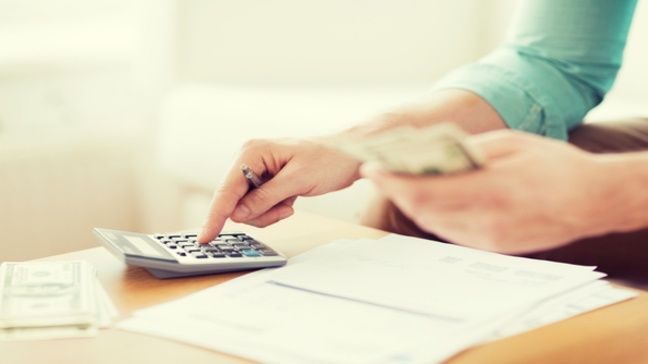
If disaster struck tomorrow and you had to put down a sudden and large payment, would you be able to do so? If you’re like many Americans, you might struggle a bit.
Studies have shown that as many as 40% of Americans can’t afford an emergency $400 payment. For many people, all they can do is try to make it day-to-day.
Until systemic change occurs, creating a personal budget is something that everyone, regardless of socioeconomic status, should do. Having some money set aside ensures that you have a safety net if something happens.
Interested in learning more?
Read on to learn all about how you can create and stick to a personal finance budget.
Try Budgeting to Zero
When most people create budgets, they give themselves some wiggle room. While they might put money aside for rent, car payments, and other areas, they also leave some for extra padding.
Instead of doing that, try budgeting to zero. Doing so is a radical way to give yourself total control of your money.
Budgeting to zero means that every dollar you earn goes somewhere:
Income – expenses = $0
This doesn’t mean that you spend all the money you earn, but rather that you put it towards something beneficial. This can be anything from your savings to an extra loan payment.
Cut Back on Seemingly Small Fees
Most people have subscriptions to numerous different services. Subscriptions to Apple Music, Netflix, and The Washington Post might seem harmless enough on their own—after all, they’re only around $10 a month each.
The problem is that subscription prices add up. It’s easy to pay more than you realize, oftentimes towards services you don’t even use. Consider canceling some of the services you use infrequently.
If canceling them isn’t realistic, consider hopping on a family plan with some friends or family members. These can help you save a few dollars a month. While that might not sound like a lot, remember—everything adds up.
Some companies can help you take control of your finances before they take control of you. Visit payactiv.com to learn more.
Plan Out Your Meals
Food is one of the easiest ways to waste money. Restaurants overcharge their food prices to absurd levels, and many people get roped into spending more than they have to.
To help save, make a list of the food you’re going to cook at the start of each week. Then, head to the grocery store to get what you need.
If you’re busy with work during the week and don’t see yourself cooking, consider getting into meal prepping. Besides giving your wallet a break, preparing your meals ahead of time is also an easy way to give yourself a healthy meal each day.
Be Smart When Grocery Shopping
Speaking of grocery shopping, the supermarket is another place where it’s easy to waste money.
Make sure you’re never hungry when you visit the grocery store. It might sound obvious, but you’re much more likely to buy something you don’t need when you have hunger pangs.
You can also try ordering groceries online for pickup or delivery. This is convenient, helps you save time, and also keeps you from impulse buys. No more buying chocolate bars or water bottles on your way out of the store!
Compare Brands
From home goods to food, most people have specific brands of items they like. Make sure that the brands you purchase give you the most bang for your buck.
Popular name brands know that they can overcharge their products and still get people to buy them. Always check to see if there’s a cheaper store brand option nearby.
While you want to ensure the products you buy last, you also don’t want to spend more than you have to. If the quality isn’t any different, save the money and go with the off-brand version.
Think of Work, Not Just the Price
Regardless of whether you’re a math whiz, prices and numbers can be hard to conceptualize. Make a point to think of the work involved each time you buy something.
For example, if you make $15 an hour and are thinking about buying a $600 phone, that ends up being 40 hours of work. If you make $10 an hour and want to buy a $200 table, that equates to 20 hours of work.
Thinking in these terms might seem extreme, but it’s a good way to remind yourself of the true cost of an item. It helps you reframe the value of your money, and hopefully, save some.
Don’t Impulse Buy Big Purchases
Impulse purchases are bad enough, but there’s nothing worse than dropping a couple of hundred dollars that you didn’t plan on spending until that moment.
Whenever you’re thinking about buying something big, flashy, and expensive, wait. Sleep on it for a night and give yourself time to mull it over.
Do you really need it? Are you certain that you’re getting the best deal possible? Will the benefits the product or service provides outweigh the initial cost?
Asking yourself these sorts of questions and taking the time to answer them will spare you from feelings of stress and regret later on.
Sticking to a Personal Budget Made Easy
Whether you’re saving up for a big purchase or want to have a more secure safety net, creating a personal budget is never a bad idea. However, when doing so, make sure you create one you can stick to.
Use the tips mentioned in this guide to help you do just that. By following the points mentioned, you’ll have no problem saving money and becoming your own personal finance manager.
Are you looking to learn more about how to budget? If you are, spend some time checking out the rest of our site for more finance-related guides and tips.







